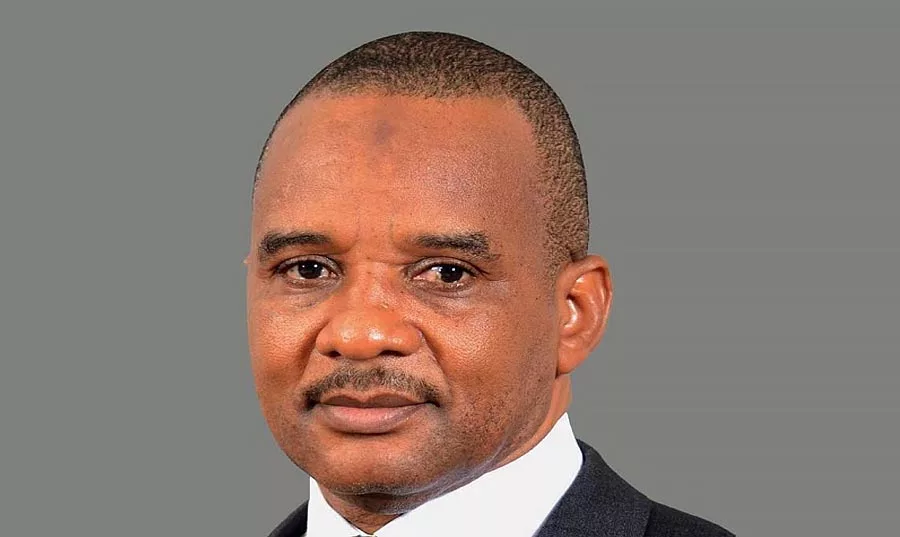The Nigerian Marítime Administration and Safety Agency (NIMASA), yesterday, said it has rejected the 8.5 per cent interest rate proposed by the Primary Lending Institutions (PLIs), for the disbursement of the Cabotage Vessels Finance Fund (CVFF).
NATIONAL ECONOMY reports that the federal government through NIMASA would provide 50 per cent of the fund while the PLIs would provide 35 per cent and 15 per cent by Shipowners.
The approved PLIs for the disbursement of the CVFF are Union Bank, Polaris, United Bank for Africa (UBA), Zenith and Jaiz bank.
However, speaking to newsmen at the opening ceremony of the visit by staff of the Ghana Maritime Authority (GMA), in charge of implementing Ghana’s Cabotage operations to the agency, the NIMASA director general, Dr Bashir Jamoh, disclosed that the agency would not allow the PLIs to impose unnecessary guidelines or interest rate on shipowners.
He said, “We are still discussing back and forth with the PLIs and unless we are sure we are getting the best deal that can help the stakeholders, we will never accept any PLI imposing unnecessary guidelines or interest rate. These are the core issue, the issue of interest rates will be dealt with and if we complete the issue of those grey area then we will disburse the fund before the end of the regime and if we didn’t finish when the new regime comes we will continue and they will advise us on the way forward but we don’t want to put any liability on the stakeholders or government.
“The remaining 15 per cent is what I say, we must get the best bargain for the stakeholders, we can’t accept any interest rate that will remain a burden on the stakeholders.
“The fund is 15 per cent contribution from the shipowners, 50 per cent from the government so if PLIs are to provide only 35 per cent they can’t come and impose high interest rate on the stakeholders. This is one of the grey area why we are going back and forth about,” Dr Jamoh stated.
He further disclosed that the agency is currently seeking alternative to the PLIs such as we development banks, to provide lesser interest rates.
“We are making contacts from other development banks to see how much they can give and put it on the table to know that even though they said they are giving this, development banks are bringing this because the PLIs from our guidelines are commercial banks so development banks are banks that can provide funding so we are consulting other banks to do peer review and after that, we will go back to the stakeholders.”
He continued, “For instance, last week, we reached certain milestones and had discussions with some of the stakeholders and the stakeholders think it’s (interest rate) not enough, we are going back to the drawing table to make sure that the interest rate we are accepting will favour all the stakeholders.
“The interest rate that is stalling disbursement as at the last time was 8.5 per cent but we still want it to go down, we want single digit and we are asking them to go down more,” he disclosed.
The NIMASA boss, however, stated that the amended Cabotage Act would be assented to before the end of President Muhammadu Buhari.
He, however, allayed shipowners’ fear that the amendment would affect the disbursement of CVFF.
“The amendment of Cabotage act has nothing to do with the disbursement. They are all different phenomenal. We have been implementing the act for past 20 years, a lot of things came to lime light in the course of implementing the policies. There are a little bottlenecks so we have to get something done to have easy process of implementation.”
“However, the core basis of Cabotage act still remains where it is, the amendment is different from the disbursement and I am not in a position to say whether the disbursement will take place before the end of this regime or not. We are still discussing back and forth with the PLIs and unless we are sure we are getting the best deal that can help the stakeholders, we will never accept any PLI imposing unnecessary guidelines or interest rate.”
Speaking earlier, the team lead of the Ghana Maritime Authority (GMA), Patience Diaba, said they are in Nigeria to learn about the implementation of its Cabotage act.
Diaba, who is the director Legal of GMA, said when the country learn from Nigeria, they will learn faster, avoid pit holes and go faster than Nigeria.
“We are here because we are about to implement our own Cabotage regulations. it is better to learn first-hand this challenges Nigeria went through so that we don’t need to go through the same, coming here the first thing to learn is the challenges and how we won’t fall into the pot holes.
“If we start like that, we will go faster than Nigeria because Nigeria had to do a lot of learning along the line but we are fortunate that we will hear from them what went wrong and how to get out of it and mechanism put in place when we do that,” she stated.





